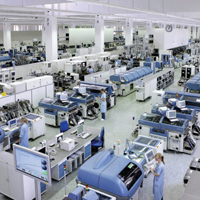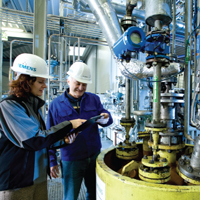Satisfiers/dissatisfiers
Frederick Herzberg also believed that people have needs that should be satisfied within the workplace. He felt that if people had their needs satisfied they would be productive employees. Herzberg's research focused upon the activities of engineers and accountants. It resulted in his two-factor theory.
Herzberg theorised that there were two influences that affected how people felt about their job.

1. Motivators (or satisfiers)
There are a number of aspects of any workplace that give individuals job satisfaction. The nature of the work itself is very important. Some individuals just love what they do.
Things that satisfy people in the workplace and make them happy are:
2. Hygiene factors (dissatisfiers)
Hygiene factors are things that can upset employees in the workplace. They are outside the control of the individual but have a huge influence on the roles of each worker. For example:
-
company policy may frustrate some employees and be viewed to some as a hindrance
-
bureaucracy or needless paperwork may be considered to be a barrier to getting a job completed
-
sometimes working conditions are not thought to be suitable
-
other factors may be poor salary or staff feeling they are not valued nor consulted.
Herzberg's theory showed that managers need to attend to the motivating factors and personal development aspects to improve employee performance. They also need to ensure that hygiene factors are met or managed in order to avoid dissatisfaction in the workplace.

Siemens managers have to balance dissatisfiers against motivators. Policies and procedures that may cause dissatisfaction have to be managed. To reduce dissatisfaction, Siemens believes the best method is to raise awareness of issues with employees and encourage their involvement. They then understand and recognise the need for change. This has helped Siemens to manage change programmes.
Motivators at Siemens are the factors that stimulate engineers to work in the best way possible. They enjoy the characteristics of their roles. Being empowered helps them to manage their roles and enables them to use this power to change things.
Whether individuals enter the organisation after they have taken their A-levels, as apprentices or as graduates, the work they undertake is stimulating. The creative nature of engineering appeals to people who like a challenge and who enjoy solving problems within a creative environment.


